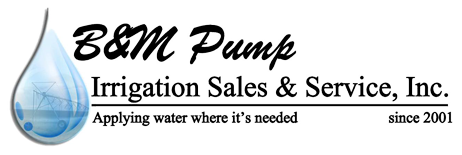Avoid Frozen Pipes: How To Maintain Irrigation Systems In Cold Weather

1. Know Your System
Before the cold season arrives, it’s important to familiarize yourself with the specific details of your irrigation system. Understanding how it operates and where the main components are located will help you take the necessary steps to prevent freezing. Locate your irrigation system’s shut-off valve and all the pipes exposed above ground level. This knowledge will be crucial when it comes time to protect the system from freezing temperatures.
2. Drain the Water
One of the most critical steps to take in maintaining your irrigation system during cold weather is to drain any remaining water from the system. Start by turning off the water supply to the system at the main shut-off valve. Next, open the drain valves or bleed the sprinkler heads to release any standing water in the pipes. This ensures that there is no water left in the system that can freeze and expand, potentially causing pipes to burst.
3. Insulate Exposed Pipes
Any pipes or components that are located above ground and exposed to the elements should be insulated. Use pipe insulation sleeves or wrap them in foam or insulation tape to provide an extra layer of protection against freezing temperatures. Pay attention to areas where pipes are close to exterior walls, as these are particularly prone to freezing. Insulating exposed pipes helps retain heat and slows down the cooling process, reducing the risk of freezing.
4. Install a Backflow Preventer Cover
Backflow preventers are crucial components of irrigation systems, but they are particularly susceptible to freezing. To protect this vital part, install a backflow preventer cover. These covers are specifically designed to shield backflow preventers from freezing temperatures. They provide insulation and protection, preventing damage to the valve and internal components.
5. Use a Programmable Controller
Investing in a programmable irrigation controller can help prevent freezing and save water during the winter months. These controllers allow you to easily adjust and schedule watering times based on the weather conditions. You can program the controller to skip watering cycles during freezing temperatures or rainy days to avoid overwatering or frozen pipes. Some advanced controllers also have freeze sensors that will automatically disable watering if the temperature drops below a certain threshold.
6. Winterize the System with Compressed Air
Winterizing your irrigation system with compressed air is a common practice in colder regions to remove any remaining water from the pipes. This process requires the help of a professional irrigation contractor who will use an air compressor to blow compressed air through the pipes. The air removes any water that may be trapped, ensuring a dry system that won’t freeze during cold weather. It’s important to follow proper procedures for winterizing to avoid damaging the system or causing leaks.
7. Regular Maintenance and Inspection
Regular maintenance and inspections throughout the year are essential for keeping your irrigation system in optimal condition. However, they are especially important before the cold weather sets in. Inspect your system for any visible damage, leaks, or worn-out parts, and replace or repair them promptly. Consider scheduling a professional maintenance visit to ensure everything is in order and ready to withstand freezing temperatures.
Conclusion
Maintaining your irrigation system during cold weather is crucial to prevent frozen pipes and costly repairs. By taking the time to drain the water from the system, insulate exposed pipes, install a backflow preventer cover, and use a programmable controller, you can significantly reduce the risk of freezing. Additionally, scheduling professional winterization and regular maintenance will help ensure your irrigation system remains in excellent working condition year-round. By following these guidelines and investing a little extra effort, you can enjoy a hassle-free and functional irrigation system, even during the coldest winter months.
Got Questions? Let Us Help!
Categorised in: Irrigation
